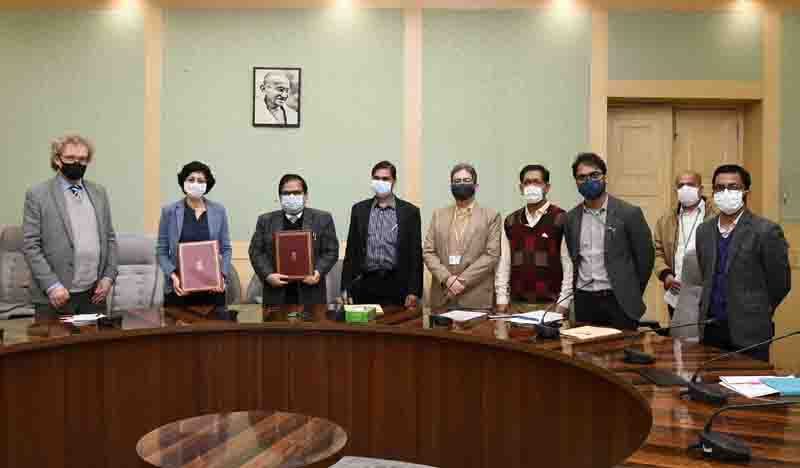 World Bank
World Bank
World Bank signs USD500 million project to develop green, resilient and safe highways in India
New Delhi: The Government of India and the World Bank on Tuesday signed a $500 million project to build safe and green national highway corridors in the states of Rajasthan, Himachal Pradesh, Uttar Pradesh and Andhra Pradesh.
The project will also enhance the capacity of the Ministry of Road Transport and Highways (MoRTH) in mainstreaming safety and green technologies.
The Green National Highways Corridors Project will support MoRTH construct 783 km of highways in various geographies by integrating safe and green technology designs such as local and marginal materials, industrial byproducts, and other bioengineering solutions.
The project will help reduce GHG emissions in the construction and maintenance of highways.
Dr C S Mohapatra, Additional Secretary, Department of Economic Affairs, Ministry of Finance stated that the Government of India is committed to environmentally sustainable development in its infrastructure projects.
This project will set new standards in the construction of safe motorable roads. The selected stretches in the states of Uttar Pradesh, Andhra Pradesh, Rajasthan and Himachal Pradesh will also help improve connectivity and promote economic development.
The agreement was signed by Dr Mohapatra on behalf of the Government of India and Ms SumilaGulyani, Acting Country Director, India on behalf of the World Bank.
The ultimate objective of transport infrastructure is to provide seamless connectivity and reduce logistics costs.
The Government of India has launched many investment programs in road sector infrastructure to strengthen and improve logistics performance.
This project will also support analytics to map the freight volume and movement pattern on the National Highway network, identify constraints, and provide innovative logistics solutions.
Historically, the transport sector in India has offered limited employment opportunities for women.
The project will support the ministry with an in-depth analysis of gender-related issues in the transport sector along with help in creating jobs for women by training women-led micro enterprises and women collectives to implement green technologies in the highway corridors.
“Connectivity for economic growth and connectivity for sustainable development are two important aspects of a country’s development trajectory. This operation brings these two priorities together in support of India’s growth strategy,” said Junaid Ahmad, World Bank Country Director in India.
“This project will provide efficient transportation for road users in the four states, connect people with markets and services, promote efficient use of construction materials and water to reduce the depletion of scarce natural resources, and help lower GHG emissions,” he added.
The National Highways of India carry about 40 percent of road traffic.
However, several sections of these highways have inadequate capacity, weak drainage structures and black spots prone to accidents.
The project will strengthen and widen existing structures; construct new pavements, drainage facilities and bypasses; improve junctions; and introduce road safety features. It is imperative that the infrastructure investments are climate resilient.
To this effect disaster risk assessment of about 5,000 km of the National Highway network will also be undertaken under the project along with support to ministry for mainstreaming climate resilience aspects in project design and implementation.
The $500 million loan from the International Bank for Reconstruction and Development (IBRD), has a maturity of 18.5 years including a grace period of five years.
Support Our Journalism
We cannot do without you.. your contribution supports unbiased journalism
IBNS is not driven by any ism- not wokeism, not racism, not skewed secularism, not hyper right-wing or left liberal ideals, nor by any hardline religious beliefs or hyper nationalism. We want to serve you good old objective news, as they are. We do not judge or preach. We let people decide for themselves. We only try to present factual and well-sourced news.







